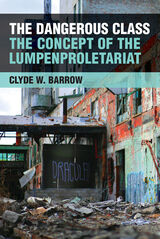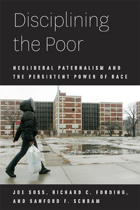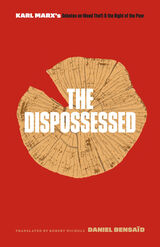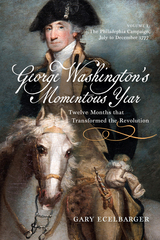4 start with D start with D

That the city and the factory cause crime and poverty has become an operative assumption for most Americans. This book is a study of an inarticulate group of people whose defining characteristic is the behavior that got them into criminal court or the poorhouse. Nineteenth-century observers tended to group criminals together with poor people into what Charles Loring Brace called “the dangerous class.” The question asked in this book is whether urbanization and industrialization, the two most central social processes in nineteenth-century American history, caused poverty and crime.
Using seldom consulted records of poorhouses and criminal courts, the author shows that the kinds of crime and the structure of crime changed, with very few paupers becoming criminals. Cities and industry affected the quality but not the quantity of crime and impoverishment. Overall no dramatic crime trends are discerned and major crimes were ubiquitous in rural and urban areas. Furthermore, the criminal class declined as Columbus grew and industrialized.
An important work in the new social history, Eric Monkkonen’s research modifies theories that the city drives its inhabitants into deviance and that status and stability inhered in the skilled occupations. He also lends clarity to the views about what kinds of criminal incidents represent pre-political rebellion.


Disciplining the Poor explains the transformation of poverty governance over the past forty years—why it happened, how it works today, and how it affects people. In the process, it clarifies the central role of race in this transformation and develops a more precise account of how race shapes poverty governance in the post–civil rights era. Connecting welfare reform to other policy developments, the authors analyze diverse forms of data to explicate the racialized origins, operations, and consequences of a new mode of poverty governance that is simultaneously neoliberal—grounded in market principles—and paternalist—focused on telling the poor what is best for them. The study traces the process of rolling out the new regime from the federal level, to the state and county level, down to the differences in ways frontline case workers take disciplinary actions in individual cases. The result is a compelling account of how a neoliberal paternalist regime of poverty governance is disciplining the poor today.

Excavating Marx’s early writings to rethink the rights of the poor and the idea of the commons in an era of unprecedented privatization
The politics of dispossession are everywhere. Troubling developments in intellectual property, genomics, and biotechnology are undermining established concepts of property, while land appropriation and ecological crises reconfigure basic institutions of ownership. In The Dispossessed, Daniel Bensaïd examines Karl Marx’s early writings to establish a new framework for addressing the rights of the poor, the idea of the commons, and private property as a social institution.
In his series of articles from 1842–43 about Rhineland parliamentary debates over the privatization of public lands and criminalization of poverty under the rubric of the “theft of wood,” Marx identified broader anxieties about customary law, property rights, and capitalist efforts to privatize the commons. Bensaïd studies these writings to interrogate how dispossession continues to function today as a key modality of power. Brilliantly tacking between past and present, The Dispossessed discloses continuity and rupture in our relationships to property and, through that, to one another.
In addition to Bensaïd’s prescient work of political philosophy, The Dispossessed includes new translations of Marx’s original “theft of wood” articles and an introductory essay by Robert Nichols that lucidly contextualizes the essays.
READERS
Browse our collection.
PUBLISHERS
See BiblioVault's publisher services.
STUDENT SERVICES
Files for college accessibility offices.
UChicago Accessibility Resources
home | accessibility | search | about | contact us
BiblioVault ® 2001 - 2024
The University of Chicago Press









